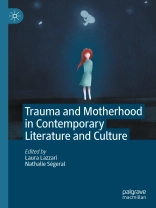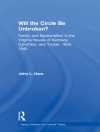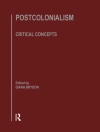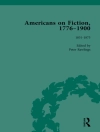Trauma and Motherhood in Contemporary Literature and Culture repositions motherhood studies through the lens of trauma theory by exploring new challenges surrounding conception, pregnancy, and postpartum experiences. Chapters investigate nine case studies of motherhood trauma and recovery in literature and culture from the last twenty years by exploring their emotional consequences through the lens of trauma, resilience, and “working through” theories. Contributions engage with a transnational corpus drawn from the five continents and span topics as rarely discussed as pregnancy denial, surrogacy, voluntary or involuntary childlessness, racism and motherhood, carceral mothering practices, surrogacy, IVF, artificial wombs, and mothering through war, genocide, and migration. Accompanied by an online creative supplement, this volume deals with silenced aspects of embodied motherhood while enhancing a better understanding of the cathartic effects of storytelling.
Table of Content
1. Trauma and Recovery New Challenges to Motherhood.- Part I: Pregnancy, Childbirth and Trauma.- 2. Understanding the Trauma of Pervasive Pregnancy Denial in
L’enfant que je n’attendais pas.- 3. Salvaging the Bones Means Fighting for Reproductive Justice: Jesmyn Ward’s Literary Representations of the Trauma Produced by Attacks on Reproductive Rights, Comprehensive Sex Education, and Access to Maternal Health Care.- 4. Social Trauma and the Anti-Maternal Body in
Diane a les épaule.- Part II: Trauma and Disrupted Mother-Child Bonds.- 5. Trauma Behind Bars: Maternal Dilemma in Rossella Schillaci’s Ninna nanna prigioniera.- 6. “Pour dire la souffrance des innocents?” Problematics of the Madonna-Son Trope in Representing Trauma in Philippe Aractingi’s Under the Bombs and Nadine Labaki’s Capernaum.- 7. Traumatic Memory and Narrative Healing in Contemporary Diasporic Chinese British Women’s Writing.- Part III. New Challenges with ART.- 8. Tragedy, In Vitro: The Function of Reproductive Science in Simon Stone’s Adaptation of
Yerma.- 9. “I have an enterprise:” Transnational Surrogacy, Neoliberal Repropreneurship, and the Potential Trauma of Clinical Labor in Zippi Brand Frank’s
Google Baby.- 10. No Trauma for Artificial Women: Monstrous, Cybernetics, and Anomalous Mothers in Current Latin American Science Fiction
About the author
Laura Lazzari is a Scientific Collaborator at the Sasso Corbaro Foundation for the Medical Humanities, Switzerland, and a Research Scholar at the Catholic University of America, USA. She specializes in Motherhood Studies and the Medical Humanities and has published extensively on women’s writing in the Italian-speaking world.
Nathalie Ségeral is Lecturer in French at the University of Sydney, Australia, and Associate Professor of French at the University of Hawaii at Mānoa, USA. She specializes in Holocaust, genocide, memory and feminist studies, trauma theory, and the Francophone South Pacific.












